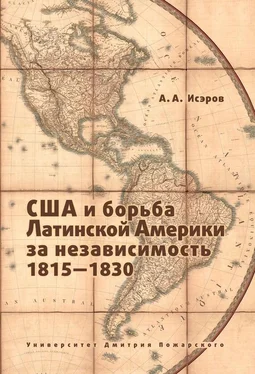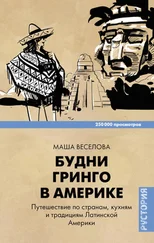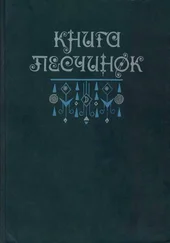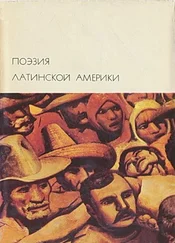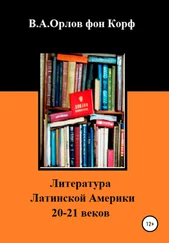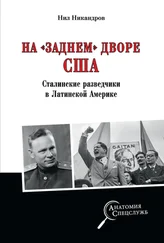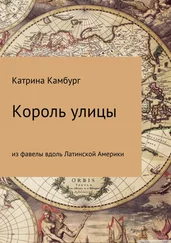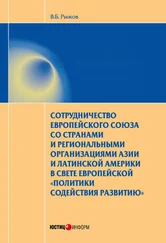The Congress loyal to the Monroe administration did not support Clay’s radical proposals, but the debates on his motions were fruitful. These discussions contributed to the Monroe Doctrine – a generalized expression of shared ideas about the goals of United States diplomacy. The development of the “natural borders” theory represented a step towards the “Manifest Destiny” of 1840s.
The ratification of the Transcontinental treaty and the annexation of Florida opened the way to the diplomatic recognition of former Spanish colonies. After 1821 Adams chose not to worry about Spains reaction. Clays radical program only contributed to the ratification of the Transcontinental Treaty by pressuring Spain. In the final account the opponents Clay and Adams did not contradict each other; both of them were promoting the common cause (the growth of U.S. territory and power) which conditioned the inner logic of their rapprochement in 1824.
2) The next stage encompasses 1822 – early 1826 (from the recognition of Latin American nations to the Panama debates). This comprised a temporary flourishing of the “Western Hemisphere idea” triumph and the peak of enthusiasm towards the southern neighbors. The recognition of the Latin American nations was universally supported.
The word “America” started to imply liberal and republican serving as an antonym to Europe, monarchy, despotism. The first U.S. Minister in Mexico Joel Roberts Poinsett deliberately called the Yorkinos party which he helped to create “American” (Partido Americana). In the end, white English speakers appropriated the monopoly on the notion of “America”.
North Americans were flattered by the fact that creole revolutionaries so readily addressed the ideology of 1776. The Special Agent in the United Provinces of the River Plate and Chile, William Worthington, the Minister in Peru, Samuel Larned, the Texas colonizer, Stephen Austin, even drafted federal constitutional projects for the new nations.
The majority of North Americans now shared a conviction in the final success of the Latin American transition – a conviction founded upon the belief in progress but not on the knowledge of Iberian culture. Not coincidentally, many of the Spanish American Revolution supporters belonged to universalist Protestant denominations which stress the individual over the collective and believe in the possibility of effective social reforms: Hezekiah Niles, William Thornton, Joseph Lancaster were Quakers, Jared Sparks was Unitarian.
The proclamation of the Monroe Doctrine with its principles of non-colonization, non-interference and no-transfer did not entail any responsibilities but laid claim to the leading role in the Western Hemisphere.
The convocation of the inter-American Panama Congress promised to become a good opportunity to proclaim and defend U.S. aims in Latin America. The public discussion around the supposed U.S. participation in Congress activities was destined to clarify attitudes towards new nations of the Western Hemisphere. But just as Henry Clay made the “Spanish American question” a basis for his criticism of the Monroe administration, protests against U.S. participation in the Panama Congress became the first overt action of the Jacksonian opposition to the Adams cabinet.
3) After the failure of the Panama Congress of 1826 early Pan-Americanism ceased to exist. This setback led to the rapid disappointment of U.S. public opinion in the republican prospects of Latin America. The instability at the verge of anarchy and civil war in most of the new nations, and Simon Bolivar s political agenda which, far from copying the northern neighbor’s experience, weakened the North American interest towards “South brethren”.
The failures of U.S. diplomats also contributed to this disillusionment. They were guided by a strange mixture of exalted hopes, arrogant self-confidence, neglect of circumstances, and often (but not always) racial and religious prejudice. U.S. representatives were moved both by a sincere wish to help republican friends and by a desire to attain their personal and national goals, which sometimes contradicted the needs of Latin American states. Those who decided to seek happiness in the South and tried to serve young republics honestly were regularly plagued by troubles but unprincipled adventurers often achieved success. The vigorous colonization of Texas by North American settlers in the 1820s was a private initiative but it corresponded with U.S. national interests and almost irreversibly led to the war with Mexico.
The disappointment of the United States in the Latin American revolutions to a certain extent bid farewell to Enlightenment universalism, to the Humean belief in the possibility of fast socio-political changes from above. Certain contemporaries deemed Catholic countries of Latin America unfit for republican government; certain disillusioned enthusiasts, both Southerners (Joel Roberts Poinsett) and Northerners (Commodore David Porter), expressed racist feelings.
John Quincy Adams called the supporters of Latin American revolutionaries “adventurers and enthusiasts”. We may add that adventurers often were enthusiasts, and enthusiasts acted as adventurers. A merchant, intellectual, revolutionary, journalist, privateer often merged in one person, e.g., William Robinson, David Curtis DeForest or Baptis Irvine. Even the most self-denying enthusiasts tried not to miss an opportunity to profit from their activities in support of Latin America: William Thornton received a right to organize steamboat communication in Columbia and intended to design the bank notes of new nations; William Duane sought to become an intermediary in the weapon supply or to be appointed to a diplomatic position. On the other hand, even the most selfish privateers, merchants, colonists aspired to enlighten the revolutionaries: David Curtis DeForest and Stephen Austin promoted republican values and the U.S. Constitution in Argentina and Mexico.
The initial illusions were founded upon the hopes of material gain, and abstract ideas. North Americans admired “South brethren” only when the latter were successfully following their way of “rational freedom”. After the revolutionary haze thinned, the economic importance of new nations for North America turned out to be rather limited, and their political system seemed remote from Anglo-Saxon ideals.
Remarkably many supporters of the “South brethren” movement were not native North Americans. Among them were European radicals (including Irish emigrants) such as William Duane, William Thornton, Baptis Irvine and also William Cobbett, former officers of Napoleon such as Ducoudray Holstein and Orazio de Santangelo. They believed in the United States as the liberal redeemer of mankind – an idea alien to the nascent national spirit of the country. When on July 4, 1821, John Quincy Adams harshly criticized such messianism he did not just follow the Founding Fathers but also determined his country’s international strategy for decades to come.
In the first third of the nineteenth century the United States aimed to open foreign markets, broaden neutral rights, guarantee the “no-transfer” of colonial dominions in the Americas from one European power to another, and most importantly, provide for territorial expansion. Latin American policies under Madison, Monroe, Adams and Clay corresponded with this general impetus. It found its logical reflection in the Transcontinental treaty, free trade agreements with Latin American nations, support of the status quo in the Spanish Caribbean dominions (Cuba and Puerto-Rico), ans in the failed attempts of the Texas purchase.
In Latin America similar political and legal forms often masked realities different from those in the United States where liberal republicanism had become a stable form of the development of capitalist society. North Americans felt this contradiction, though in the beginning they did not want to admit it. In spite of the hopes of the “American system” ideologue, the New World unity had no strong socio-economic background.
Читать дальше
Конец ознакомительного отрывка
Купить книгу
